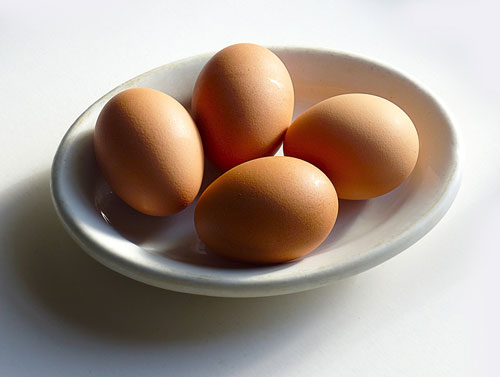How much protein should you eat?

Ensuring you eat enough protein every day will do wonders for your overall health, but just how much protein should you eat? The bare minimum for generally healthy, sedentary adults is 0.8g of protein per kg of body mass. To figure out your bare minimum, take your weight in pounds and divide it by 2.2, then multiply that number by 0.8.
For a 150lb person, this translates to 55g of protein per day.
However, protein is involved in a number of different bodily functions including the repair and rebuilding of tissues, hormones, and our immune system. So the amount of protein required can go up when we:
- Train hard or have a physically demanding job.
- Are injured or sick.
- If we are losing protein for some other reason – like poor digestion or chronic physical stress.
In addition, increasing your protein intake when trying to lose fat will help reduce lean mass lost and can help keep you feeling full longer. Here’s two studies displaying those claims – increased protein in athletes during weight loss, higher protein preserves lean mass with weight loss in women.
For physically active people, the International Society of Sports Nutrition recommends 1.4-2.0g of protein per kg of body mass, while the American College of Sports Medicine and Academy of Nutrition and Dietetics recommends 1.2-1.7g of protein per kg of body mass.
What this boils down to:
- If you are an athlete or very active person attempting to lose fat while maintaining lean muscle mass, you should aim to consume 1.7-2.2g/kg of body mass per day.
- If you are trying to lose fat and maintain lean mass, or are an athlete or very active person, you should aim for 1.2-1.7g/kg of body mass per day.
- If you are sedentary and don’t want to change your body composition, you should aim for at least 0.8g/kg of body mass per day.
We probably don’t need more than 2.2g/kg of body mass daily. Though higher levels of protein can be safe, it’s not necessarily advisable to be above 2.2g/kg on a regular basis for the average person.

Remember to do your best to meet your protein needs with real, whole, less-processed foods first, and then supplement if necessary. Protein is found in a large number of foods and since we cannot store it in the same way fats and carbohydrates are, it is important to consume enough daily. Here’s a list of some common high protein foods.
Leave a comment below with any questions!

